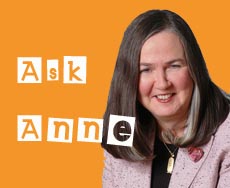Mammography screening… How can we refocus the discussion?
Reading Time: 2 minutes read
A recent CDC report examining mammography prevalence confirmed what I’ve been hearing from many customers: screening compliance is flat to down in the U.S. The most common reason women give for not having a mammogram is that their primary care did not recommend the test.
It’s no secret that referring physicians have an important role in determining whether women stay up-to-date with their mammograms. For reasons that can be difficult to pinpoint, the rate at which primary care physicians recommend mammograms for patients seems to fluctuate. That’s why reminders and continuing education for women, as well as their doctors, will always be important.
It’s still too early to determine whether the recent U.S. controversy over when screening should begin (age 40 or 50) is affecting screening prevalence. That issue aside, the report found that about one of five women between the ages of 50 and 74 never had a mammogram or were not up-to-date with getting screened in 2008. While some women don’t get a mammogram because they don’t have health insurance and can’t afford it, CDC says, others are simply not aware of, or convinced of, the benefits of screening. That tells me that, despite our progress and good efforts, we are still not doing enough.
It also lends itself to another question… How can we focus the discussion on getting more women screened for breast cancer?
From working in the women’s healthcare field for more than 20 years, it’s frustrating to see our community make the same mistakes over and over again. The issue regarding when screening should begin is certainly not a new one, nor are the reasons cited by CDC to explain why prevalence isn’t what it should be.
We’ve been debating and/or discussing these issues for years, while screening rates continue to suffer. We all know personally of women under 50 who have directly benefitted from having mammograms. Stories of saved lives, as well as those not so fortunate, abound. We know we need to reach doctors and patients to keep our referrals increasing, and there are a lot of great organizations and individuals who continue to do so. But clearly we are not doing enough.
Breast Cancer Awareness month, now fast approaching in October, provides a great opportunity to re-focus and re-energize our mission. We’ll be doing our part, and I hope you will too.
What do you think? How can we do better?
– Anne Richards, Clinical Development Manager, Women’s Healthcare

Dr Rozi Mahmud
My usually tell patients and referral practitioner to use birthday dates as their routine screening date..
Remember birthday, remember mammogram date..
carestreamhealth
Great idea… sites can send a birthday card and reminder letter at the same time! Thank you, Dr. Mahmud.
– Anne Richards, Carestream Health
Wilfrid Hartnagel
Could it be that women are getting aware of the risks of mammography?
The risks by far outweigh the benefits.
Mammography causes breast cancer and detects less than a third while causing unnecessary biopsies.
Numerous studies indicate that mammos do not save lives and are completely useless for women with higher breast tissue density.
Wome in Europe have long voted with their feet and refuse mammos, a view that is supported by most physicians.
A breast thermography as supported by the German Medical Association is far more accurate and totally non invasive. It is also suitable for younger women with dense breasts and detects lesions below 5 mm which remain invisible with mammo.
Michael
This kind of misinformation is prevelant in the US. Early detection and screen mammography save lives. Pls stop spreading erroneous information regarding unproven testing, non-FDA sanctioned procedures, and bogus non-peer-reviewed studies from foreign lands.
jeremy
probably the dumbest comment i have ever read.
Adenike Akhigbe
This is definitively a misinformation. It should be discouraged as it lacks any scientific basis.
dr_nasif
i would like to have every thing new about mamograph please